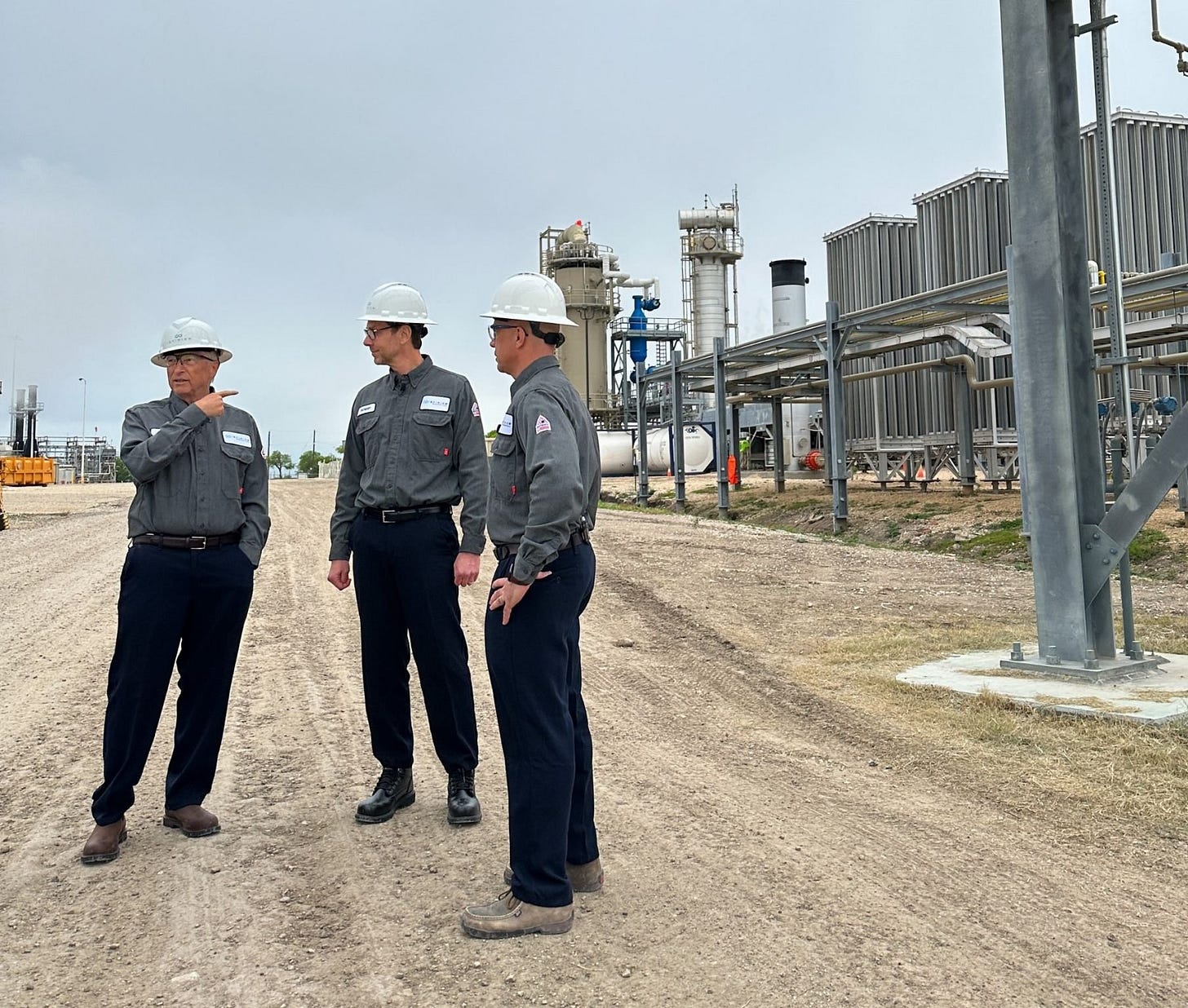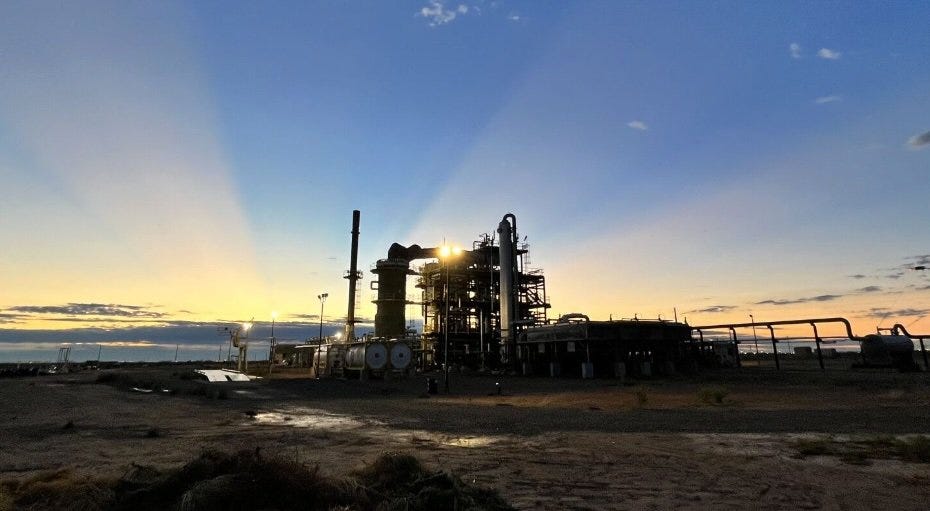Why Infinium's e-fuels are attracting major players to decarbonise aviation and beyond
Ayesha Choudhury, Infinium's SVP of Capital Markets, stresses the importance of bankable offtake agreements and policy support in developing the e-fuels industry.
In a groundbreaking move, Infinium opened Project Pathfinder in Texas in March 2024. According to the company, it is the world's first operational and commercial-scale e-fuel facility.
The plant is already producing e-diesel for Amazon's trucks using captured CO2 and green hydrogen, signalling a major step forward in the adoption of alternative fuels. However, Infinium's vision extends far beyond e-diesel for road transport.
Ayesha Choudhury, Infinium's SVP of Capital Markets, spoke with Sustainability in the Air about the crucial role of the aviation sector in the company's long-term strategy, especially given American Airlines' offtake agreement with Infinium, announced in November 2023.
The agreement was part of a $75 million investment commitment from Breakthrough Energy to support the construction of Project Roadrunner, which is set to become the largest Power-to-Liquids (PtL) e-fuel facility in North America.
"American Airlines has been a fantastic, visionary partner," Choudhury said. "They understand that to meet aviation's decarbonisation goals, we need to scale SAF, specifically e-fuels or PtLs."
Bankable offtake agreements are key
Choudhury stressed the importance of this partnership in allowing Infinium to scale its operations. "This offtake contract is a long-term 'take or pay' contract. That's what we call a financiable contract or a bankable contract," she explained. "That's critical for scaling the industry.”
As a result, by securing a long-term supply of e-fuels, American Airlines is taking real steps towards reducing its carbon footprint and contributing to the industry's sustainability goals.
Choudhury also emphasised the need for firm, definitive terms in offtake agreements to ensure the bankability of e-fuel projects:
"What we see in the market is a lot of not so strong commitments, more like MOU type of offtake agreements without firm definitive terms.”
Of course, these MOU or LOI deals are common in the sustainable aviation space. They allow the airline to do very little while providing it with a certain amount of PR value.
Choudhury highlighted that the agreement with American Airlines is not exclusive, allowing Infinium to work with other airline partners in the future.
The partnership has caught the attention of Bill Gates, who has not only invested in Infinium Fuels through his Breakthrough Energy investment fund but has also personally visited their facilities to see the production of e-fuels firsthand.
In his blog, Gates Notes, Bill Gates wrote:
"The key to Infinium's approach is that their fuels can be dropped into existing engines. That's huge. It means that companies won't have to adapt their fleets, removing one of the biggest hurdles to transitioning to a new fuel.”
He continued: “I'm especially excited about the work they're doing on sustainable aviation fuel, or SAF – which could reduce emissions from air travel by as much as 90 per cent, according to company estimates."
Choudhury noted that Gates has been a long-time believer in e-fuels, having highlighted their importance in his 2021 book, "How to Avoid a Climate Disaster". Gates stated that e-fuels are the most effective way to move towards zero emissions in transportation, particularly in sectors that are difficult to electrify.
Innovative partnerships drive the adoption of sustainable aviation fuels
In a move that further bolsters the significance of the offtake agreement between Infinium and American Airlines, financial behemoth Citi has separately agreed to transfer the associated emission reductions to its own account. This arrangement will support the scaling of Infinium's e-fuels technology while simultaneously helping to reduce a portion of Citi's Scope 3 emissions generated from employee travel.
The collaboration between Citi and American Airlines to support Infinium's e-fuels is just one example of a growing trend in which corporate partners are working hand in hand with airlines to drive the adoption of SAF.
Another notable example is the partnership between e-fuel start-up Twelve, Alaska Airlines, and technology giant Microsoft.
Strategic location and falling costs key to e-fuel success
To scale operations, Infinium is strategically locating its production facilities in areas with cheap, distressed, and plentiful renewable energy. By tapping into these "stranded" energy resources, the company can produce e-fuels at a more competitive cost.
This approach is similar to that of e-fuel companies like HIF Global, which has talked about setting up a base in renewable energy-rich areas and shipping the fuel to “demand centres”.
This strategy aligns with the views of aviation industry leaders such as Lufthansa's CEO Carsten Spohr. In an interview last year, Spohr said that decarbonising Germany's aviation fleet with e-fuels would take up half of the country's electricity capacity. However, Spohr pointed out that Germany could import e-fuels from regions with abundant renewable energy resources, just as it currently imports fossil fuel-based jet fuel.
E-fuels could follow solar energy’s price trajectory
While e-fuels currently have a higher production cost than fossil fuels, Choudhury is confident that the industry will follow a trajectory similar to that of solar energy:
"From 2010 to 2022, solar costs fell by over 80 percent. We expect something very similar for e-fuels."
Several factors, including research and development, falling renewable power costs, and advancements in electrolysis technology, are expected to contribute to the decreasing costs of e-fuels over time.
Scaling up e-fuel production is another critical factor in driving down costs. Choudhury emphasised the importance of building more plants and securing bankable offtake contracts, like the one with American Airlines, to achieve the necessary scale:
"When we thread it all together, there are a lot of stakeholders that are required to scale up this space. There are producers like us. We have the technology. We have projects that we're developing. It'll take creative offtakers like American Airlines and some of the others that we are working with."
Policy support and planned expansion
Choudhury further said that policy support, such as the mandates set by the EU and UK, requiring a significant portion of the fuel mix to come from power-to-liquids, will further accelerate the adoption of e-fuels.
In terms of technology, Choudhury said that Infinium is adopting “an advanced derivative” of the Fischer-Tropsch process: “We don't use the traditional Fischer-Tropsch process, but we have a proprietary process.” According to Choudhury, there's greater efficiency since they can achieve results in fewer steps because of the proprietary process.
Infinium is currently developing projects globally, with planned developments in the United States, Japan, Australia, Norway and France. Choudhury emphasised that the company is focused on long-range commercial transportation and doesn’t see itself as an e-fuels provider for car manufacturers, which is a key point of difference to a company like HIF Global, which is working with Porsche:
“Infinium remains focused on hard-to-abate sectors like aviation, shipping, long haul trucking and the plastics / petchem sector. We do not have plans to enter the automotive space which we think is likely to continue down the road of electrification.”
Earlier this year, Infinium signed an MOU with the Mo Industrial Park in Northern Norway. This will see the creation of a facility with the capacity to produce an initial 2,000 barrels per day (BPD) of e-fuels, including eSAF, eDiesel, and eNaphtha, with the capacity to expand. Across the channel, in France, Infinium is developing an e-fuels plant near Dunkirk alongside Engie and ArcelorMittal.






